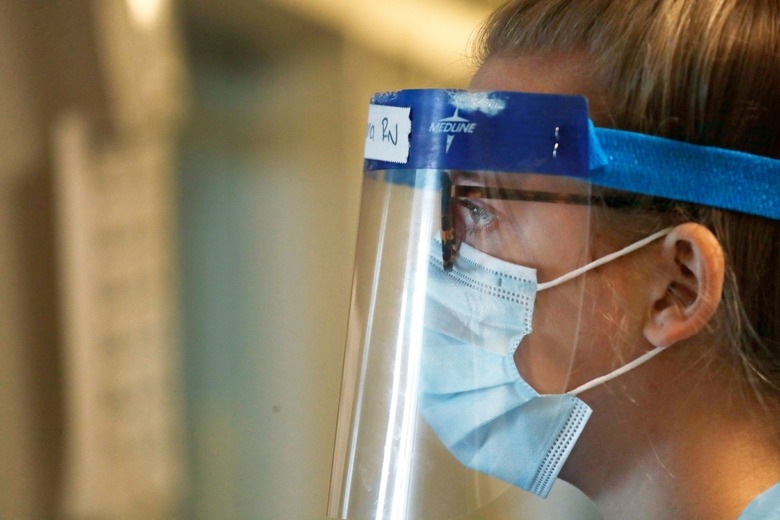Coronavirus Symptoms Are More Severe For Cigarette Smokers
- Coronavirus symptoms tend to be more severe for smokers.
- Cigarette users are more at risk as their lungs have more receptors that the coronavirus needs to latch onto.
- A recent study found that smokers with Covid-19 are 14% more likely to end up in the hospital than non-smokers
Though anyone can contract the coronavirus, there are a few groups of people who are particularly prone to experiencing severe symptoms. It's been widely documented, for example, that men over the age of 70 are at a greater risk of dying than anyone else.
Individuals with pre-existing medical conditions such as diabetes and obesity are also more likely to experience severe coronavirus symptoms. And seeing as how the coronavirus can inflict a lot of damage on the lungs, it's perhaps not surprising that a new study finds that smokers, especially life-long smokers, are more likely to get ill from the coronavirus than non-smokers.
According to the Imperial College in London, smokers are 14% more likely to end up in the hospital with severe coronavirus symptoms relative to non-smokers:
Smokers were also 29% more likely to report more than 5 symptoms associated with COVID-19 and 50% more likely to report more than 10, including loss of smell, skipping meals, tiredness, diarrhoea, confusion or muscle pain. In addition, smokers were more than twice as likely as non-smokers to end up in hospital with severe symptoms of COVID-19 having tested positive for the disease
A previous study published in the New England Journal of Medicine found that 12.3% of coronavirus victims who smoke end up in the ICU or on a ventilator compared to 4.7% of non-smoking coronavirus victims.
Research has shown that the coronavirus impacts smokers more seriously because cigarette smoke increases the number of ACE2 receptors in the respiratory tract that the coronavirus tends to latch onto. As LiveScience notes, this "leaves the organ vulnerable to damage inflicted by the coronavirus."
While smoke-exposed tissues harbored more ACE2 receptors, the team could not tell which specific cells contained the receptor. By examining which proteins appeared in what cells, the team found that ACE2 appeared on cells that process oxygen and carbon dioxide in the lungs, known as alveolar type 2 cells. But primarily, the receptors appeared on cells that secrete a mucus-like fluid into the respiratory tracts, known as goblet and club cells. Nonsmokers carry most of their goblet and club cells in their nose and throat, but in smokers, the cells begin to accumulate also in the lungs, the authors found.
"What they're suggesting is that when you smoke you have an increase in goblet cells [in the lower respiratory tract], and that's definitely true," Christenson said.
On a related note, Dr. Anthony Fauci recently said that he's cautiously optimistic about a potential coronavirus vaccine emerging over the next few months. Still, we shouldn't expect a miracle vaccine anytime soon. In a best-case scenario, a vaccine might become available sometime in early 2021.
